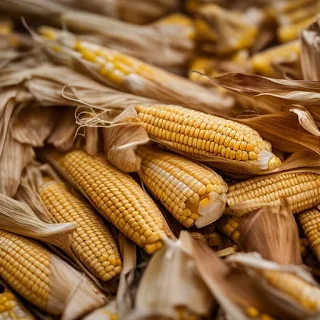Beyond Financial Exclusion of Women Farmers
Issues female farmers face due to poor transportation, trade barriers, and storage facilities.
Women farmers in Africa face multiple challenges in accessing markets and ensuring the timely delivery of their produce. The lack of well-maintained roads and transportation networks makes it difficult for them to transport their goods, leading to increased costs and spoilage. Inadequate storage facilities further compromise the quality and freshness of agricultural produce.
Beyond Financial Inclusion.
The challenges faced by women farmers in Africa extend beyond financial inclusion. Access to decent roads and proper storage facilities is crucial for ensuring their harvests promptly reach the market, avoiding spoilage and loss. However, trade barriers and inadequate infrastructure pose significant obstacles, hindering women farmers from competing effectively and exacerbating the pressures on the African food system.
Female farmers in Cameroon face obstacles such as limited access to land ownership and credit, lack of technical training and resources, and gender disparities in agricultural extension services. These factors restrict their ability to compete effectively in the market and hinder their agricultural productivity.
Cultural norms and gender-based discrimination also contribute to the difficulties faced by female farmers. In many Nigerian communities, traditional gender roles dictate that women are responsible for household chores, childcare, and other non-farm activities, limiting their time and energy for agricultural work.
Moreover, discriminatory practices and unequal power relations often restrict women's decision-making authority, access to resources, and participation in key agricultural value chains and markets.
Access to Decent Roads: Overcoming Transportation Challenges.
In many rural areas of Africa, the lack of well-maintained roads and transportation networks makes it difficult for women farmers to transport their produce to markets.
The existing road infrastructure may be in poor condition or nonexistent, resulting in long and arduous journeys that increase transportation costs and delay the delivery of fresh produce.
As a consequence, fruits, vegetables, and other perishable goods often rot in the fields before reaching consumers, leading to significant economic losses for women farmers and contributing to food waste.
Female farmers in Mozambique encounter difficulties accessing land rights and face limited access to financial resources and modern agricultural technologies. Additionally, inadequate infrastructure, including roads and storage facilities, exacerbate the challenges they face in bringing their products to market.
Inadequate Storage Facilities: Preserving Quality and Freshness.
Inadequate storage facilities exacerbate the challenges faced by women farmers. Without proper storage infrastructure, preserving the quality and freshness of agricultural produce is challenging.
Post-harvest losses due to spoilage, pests, and inadequate preservation methods further compromise the profitability and sustainability of women farmers' enterprises. The inability to store and market their products effectively limits their bargaining power and market access, leaving them at a disadvantage compared to larger agricultural enterprises.
Trade Barriers: Impeding Market Access
In addition to transportation and storage issues, trade barriers further impede women farmers' ability to compete in the market. Tariffs, quotas, complex regulations, and cumbersome border procedures create additional costs and administrative burdens, limiting women farmers' opportunities to sell their products across borders and access larger markets. These barriers stifle agricultural trade and prevent women farmers from fully benefiting from regional and international market opportunities.
The Far-Reaching Consequences for the African Food System
The consequences of these challenges are far-reaching, as they put unnecessary pressure on the African food system. Africa's growing population and rising food demand make it crucial to enhance agricultural productivity and improve the efficiency of food value chains. However, the limitations imposed by trade barriers and inadequate infrastructure hamper the region's ability to meet this demand, leading to food shortages, higher prices, and increased vulnerability to food insecurity.
In Mauritania, gender inequalities, including limited access to education and financial services, contribute to the challenges faced by female farmers. Cultural norms and discriminatory practices restrict their access to land, credit, and markets, undermining their agricultural potential.
Inadequate extension services further exacerbate the challenges faced by female farmers in Nigeria. Extension services play a crucial role in providing technical guidance, training, and information on modern agricultural practices.
However, there is often a lack of gender-sensitive and accessible extension services tailored to the specific needs of female farmers. Limited access to relevant and timely agricultural information hinders their ability to adopt improved farming techniques, address crop diseases, and respond to market demands.
Addressing the Challenges: Strategies for Change
To address these issues, concerted efforts are needed at various levels. Governments and regional organizations should prioritize investments in infrastructure, including road networks, cold storage facilities, and post-harvest management systems. This requires collaboration with development partners to secure funding and technical assistance for infrastructure development projects.
Targeted capacity-building programs can empower women farmers with the necessary skills and knowledge to adopt post-harvest technologies, improve storage practices, and access market information. This includes providing training on proper handling and preservation techniques, facilitating market linkages, and promoting entrepreneurship and business management skills.
By addressing the challenges related to transportation, storage, and trade barriers, African countries can unlock women farmers' potential and enhance the food system's overall resilience and efficiency. Empowering women farmers to compete effectively in the market will contribute to their economic empowerment and ensure a more sustainable and food-secure future for the entire continent.






